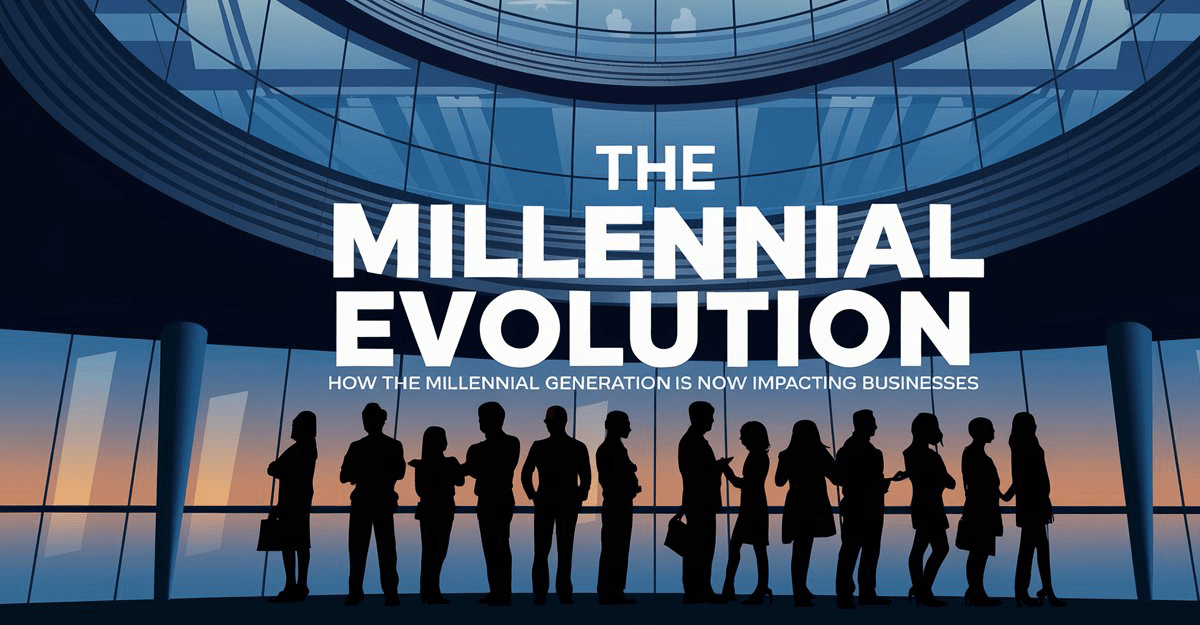Millennials: Key Business Insights for 2025 and Beyond
Forget everything you thought you knew about millennials. While headlines once focused on avocado toast and job-hopping, this generation now commands $2.5 trillion in spending power and is fundamentally reshaping how businesses must operate to remain relevant. As they enter their prime earning years (ages 28-43), millennials aren't just participating in the economy—they're transforming it.
Think about it: when 81% of a generation prioritizes how companies treat their employees, and two in ten have actually changed careers to align with their environmental values, we're no longer talking about superficial consumer preferences. We're witnessing a seismic shift in market dynamics. The question isn't whether your business should adapt to millennial values—it's whether you can afford not to.
What happens when a generation that spends 77% more on online clothing than Baby Boomers also demands complete transparency about your supply chain? How does your business strategy change when your customers are willing to pay premium prices for sustainable products, yet 52% live paycheck to paycheck? These aren't contradictions—they're the complex realities of a generation that's mastered the art of values-driven consumption in a digital age.
For businesses, the implications are clear: surface-level marketing won't cut it anymore. When 75% of millennials consider an organization's societal impact in their employment choices, and they're actively researching companies' environmental practices before making purchases, every aspect of your business operations becomes part of your brand story.
Just look at the numbers:
Economic Impact and Spending Power
Millennials command a substantial $2.5 trillion in spending power, despite economic challenges[5]. Their financial behaviour shows a complex balance between caution and consumption:
- 52% live paycheck to paycheck
- 37% have taken on side jobs for extra income
- 25% plan to increase e-commerce spending[5]
Values-Driven Consumption
Modern millennials demonstrate sophisticated consumer behaviour that aligns spending with personal values:
Workplace Priorities
- 81% prioritize companies that treat employees well
- 75% consider an organization's societal impact when choosing employers[3]
- 34% report satisfaction with work-life balance[5]
Environmental and Social Impact
- Two in ten have changed jobs or industries to align with environmental values
- They actively research companies' environmental practices
- Willing to pay premium prices for sustainable products[3]
Digital Engagement Patterns
Millennials continue to lead digital transformation across industries:
Shopping Preferences
- 27% plan to increase online spending while reducing physical retail purchases
- 50% higher online spending on health and beauty compared to Gen Z
- 77% higher online clothing expenditure compared to Baby Boomers[5]
Brand Relationship Dynamics
Modern millennials exhibit sophisticated brand engagement patterns:
Brand Loyalty Drivers
- Value authenticity and transparency
- Demand sustainability and social responsibility
- Seek personalized experiences while maintaining data privacy[1]
Regional Variations
Brand engagement varies significantly across markets:
- US millennials prioritize social justice and authentic brand activism
- Japanese millennials focus on carbon neutrality and sustainable practices
- Southeast Asian millennials emphasize sustainable tourism and eco-friendly options[1]
New Zealand? Our millennials dabble in all of those, and more.
Strategic Implications for Businesses
To effectively engage millennials in 2025, businesses should:
Digital Presence
- Optimize mobile experiences
- Invest in video content
- Leverage Connected TV (CTV) marketing[5]
Corporate Responsibility
- Demonstrate genuine commitment to sustainability
- Show transparent employee treatment
- Engage in meaningful social impact initiatives[3]
Product Development
- Focus on sustainable and ethical production
- Incorporate technological innovation
- Offer personalized experiences[2]
Conclusion
The data is clear: millennials have evolved. They're not just choosing products—they're choosing futures. They're not just buying from brands—they're investing in values. And they're still willing to pay premium prices for sustainable products that align with their beliefs.
Here's your wake-up call: If your business strategy still treats millennials as the "entitled generation," you're not just missing the mark—you're missing the market. This is a generation that's sophisticated enough to demand both personalized experiences and data privacy, that spends heavily online while researching your environmental practices, and that's willing to change careers entirely to align with their values.
The question isn't whether millennials will transform your industry—they already are. The real question is whether your business will be relevant in their future.
The millennials of 2025 aren't waiting for businesses to catch up—they're voting with their wallets, their careers, and their data. The choice is yours: Will you continue operating on outdated assumptions, or will you evolve to meet the sophisticated demands of a generation that's rewriting the rules of commerce?
The avocado toast generation has grown up. Have you?
Citations:
[1] https://kadence.com/en-us/the-millennial-metamorphosis-what-matters-to-them-in-2024/
[2] https://www.forbes.com/advisor/business/software/generational-relationships-brands/
[3] https://www2.deloitte.com/us/en/insights/topics/talent/deloitte-gen-z-millennial-survey.html
[4] https://www.forbes.com/sites/deloitte/2024/05/15/gen-zs-and-millennials-seek-purpose-and-progress-in-a-changing-world-insights-from-deloittes-2024-gen-z-and-millennial-survey/
[5] https://porchgroupmedia.com/blog/millennial-marketing-statistics/
